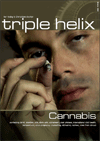From the position of a Harvard Business School professor, Deborah Spar tackles the thorny issue of infertility and the markets that it has created. Her thesis is much broader than one might expect. She covers the ethical dilemmas thoroughly and describes beginning of life issues in a clear and engaging manner, embracing multiple perspectives as she tours the arena.
In-vitro fertilisation (IVF), preimplantation genetic diagnosis (PGD), cloning, surrogacy and adoption are described accurately, and their positives and negatives weighed. Her chapter headings include quotes from Genesis 30:1 and Isaiah 54:1-2, and the final chapter is called Songs of Solomon. This seemingly tries to hide a utopian ethic in her conclusions.
Put simply, Spar argues that the market for babies exists because of the human longing to procreate. When the natural process fails, no price can be put on the possibility of creating a baby. Couples will pay whatever they can afford, even when a fertility specialist hasn't succeeded for them on previous attempts.The author states plainly: 'the market will function even if the morals are cloudy and the law uncertain'.
Spar's research shows that the market for babies is large as up to 15% of couples are infertile; in the USA about a third of these seek treatment. The product sold by clinics is not babies but 'hope and medicine to make babies'. Each IVF cycle has a 60-70% failure rate. Buying and selling of gametes occurs in many states and is not well regulated. A top-of-the-league egg from a university student donor can change hands for up to $50,000!
In recent years, couples considering adoption have had to wait longer as the number of available babies has dwindled with the surge in abortions. The combination of low IVF success rates and fewer domestic babies available for adoption has resulted in a market for international adoption. The fees charged in some cases reach up to $25,000. Her main arguments here are for tighter government regulation.
In the middle of the book, Spar discusses the issues surrounding designer babies and unpacks the history of eugenics during the Nazi regime. The USA led the way in this field in the 1930s, and Germany subsequently amplified it. She further discusses the attempt of the anti-abortion lobby to block PGD and embryo research, and the outlawing of cloning in the USA by President Bush. Some of her research reveals disturbing philosophical applications.
Spar concludes by laying out various models by which the baby business could be regulated. She feels that there should be a wider political debate to decide which techniques are acceptable and which are not. But, as she says, the fact remains that as long as the will and the technology exist somewhere in the world, no amount of ethical persuasion will stop somebody from using it, especially if there is a profit to be made. Although this book is not aimed directly at Christians, it would be helpful for any Christian interested in the challenges raised by the fertility business.
































